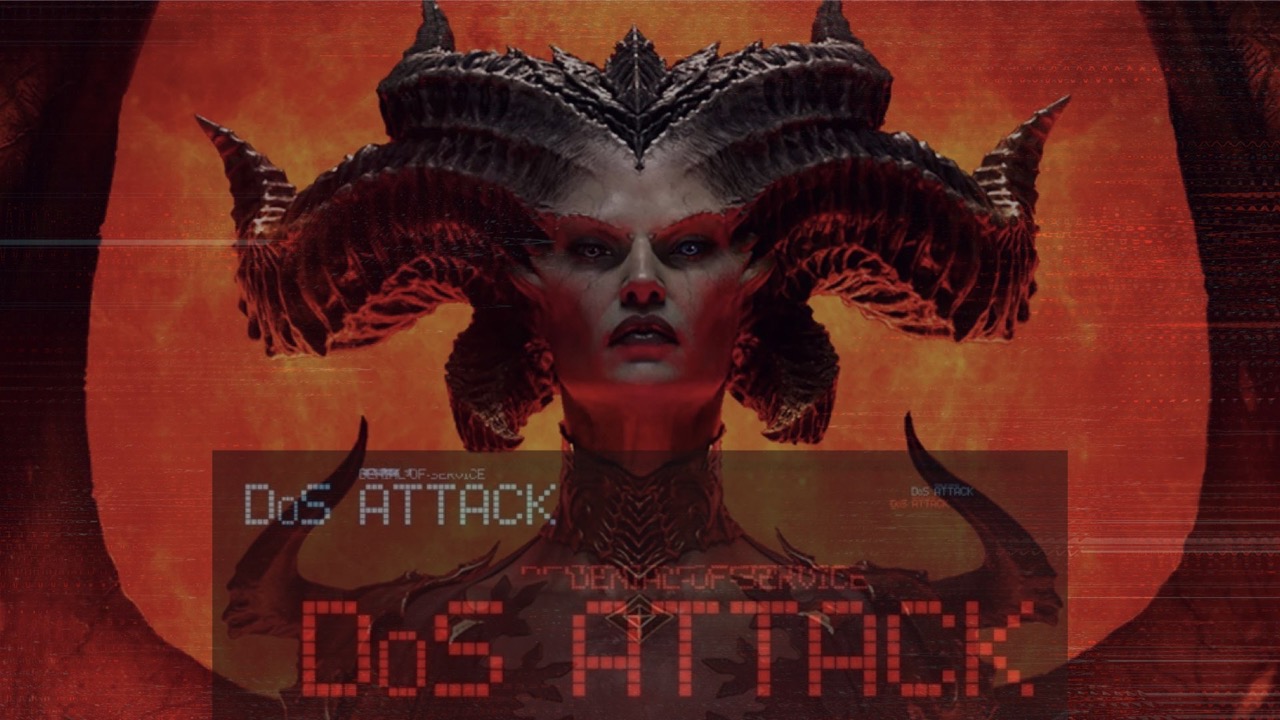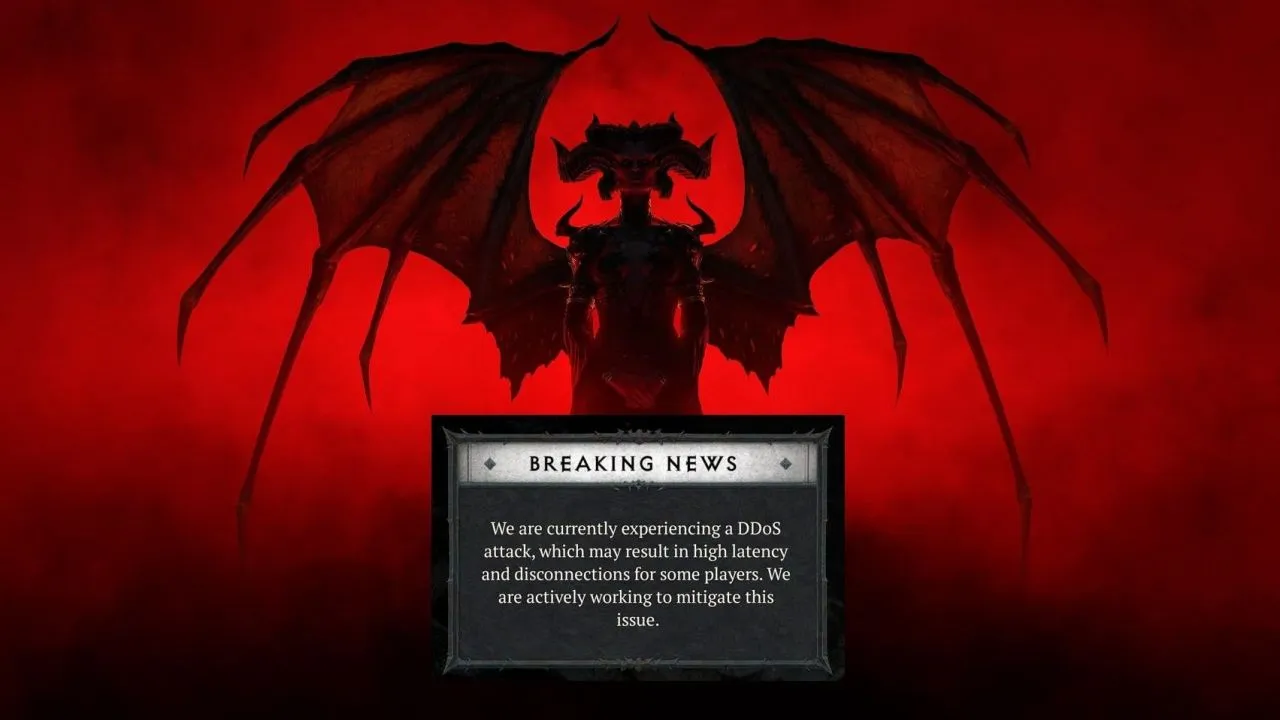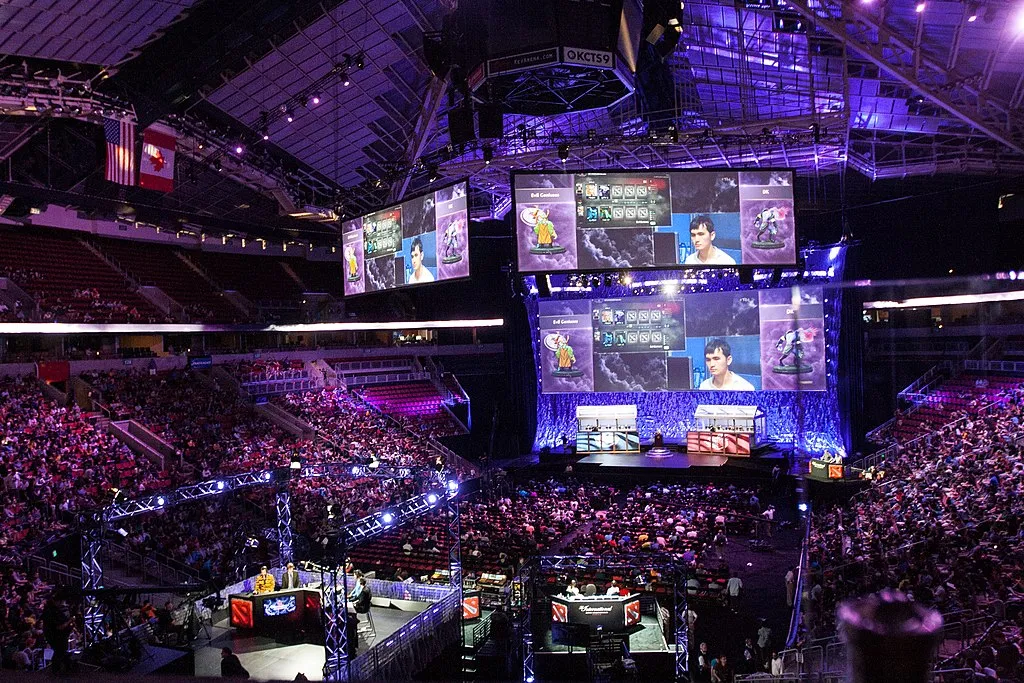Diablo 4 players were left frustrated over the weekend as a disruptive Distributed Denial of Service (DDoS) attack targeted Blizzard’s infrastructure. This attack affected the game’s servers, causing log-in issues, latency problems, and a diminished gameplay experience.

Photo Credit: Blizzard Entertainment
Over the weekend, players of the highly anticipated game Diablo 4 encountered significant difficulties as they attempted to log in and play. It quickly became apparent that the issue was not isolated to individual players but was, in fact, a result of a Distributed Denial of Service (DDoS) attack targeting Blizzard Entertainment. Notably, several players were unable to enter the game for more than 12 hours.
A DDoS attack involves overwhelming servers with a flood of fake requests, rendering them unable to function properly. In this case, malicious actors used bot networks to launch a coordinated assault on Blizzard’s servers, causing disruptions for players trying to connect to Diablo 4, which requires an online connection throughout gameplay.
Frustrated players turned to platforms like Reddit and social media to express their grievances and seek confirmation from others experiencing the same problems. Blizzard swiftly acknowledged the DDoS attack and utilized the in-game news widget to communicate with players, warning them about potential disconnections and login failures resulting from the attack. Even those fortunate enough to access the game encountered issues such as latency and rubber banding, significantly impacting the gameplay experience.
The attacks occurred on Sunday and affected both the North American and European regions, as confirmed by Blizzard’s customer service Twitter accounts. The disruption persisted for several hours before stability was restored late Sunday, allowing players to resume their gaming sessions. Throughout this period, Blizzard remained in close contact with the community, providing regular updates and addressing concerns.
While the DDoS attack was undoubtedly frustrating for players, it serves as a reminder of the ongoing threat posed by such malicious activities. The attack on Diablo 4 highlights the vulnerabilities that persist in online gaming communities and the need for continuous vigilance from developers and service providers to safeguard against similar incidents.
In a separate incident, Diablo III players may recall the infamous “Error 34” that caused widespread frustration in the past. This recent DDoS attack has once again reignited discussions within the community about the necessity and limitations of an always-online requirement for games. Some players have expressed their desire for an offline mode, although Blizzard has not indicated any plans to implement such a feature in Diablo 4’s current development stage. However, it is not uncommon for developers to introduce offline modes in games that have reached the end of their content updates, suggesting a potential avenue for offline gameplay in the future.
Photo Credit: Screengrab from Diablo 4

DDoS attacks are not exclusive to gaming experiences. Threats to organizations in many industries are similar.
Radware, a cybersecurity company, recently suffered a series of severe attacks directed at a large multinational corporation. These Web DDoS Tsunami attacks were distinguished by their protracted duration, advanced encryption methods, and employment of different evasion mechanisms. Over the course of seven days, they overwhelmed security forces and interrupted operations.
Traditional mitigation tools and network-based DDoS protections have proven inadequate against these evolving attack strategies. To effectively defend against this new breed of DDoS attacks, companies must adopt a different approach. Behavioral-based algorithms that automatically detect and generate real-time signatures for unknown malicious requests without disrupting legitimate traffic are becoming crucial. Additionally, robust support and service provisions are necessary to ensure prompt response and protection for organizations operating in an increasingly hostile cyber landscape.
The recent DDoS attack on Diablo 4 serves as a reminder of the ongoing challenges faced by online gaming communities and organizations alike. As the threat landscape evolves, developers and service providers must remain proactive in their efforts to protect their platforms and ensure an uninterrupted gaming experience for players.
Stay connected with Today On Globe for the latest Global Issues and News Updates.
Explore more related articles at [TOG News / TOG Article]





